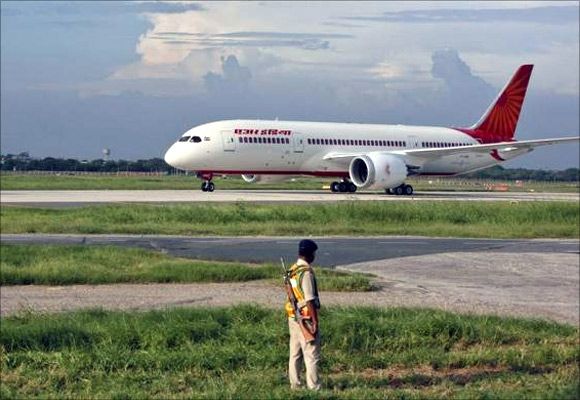 The civil aviation ministry will soon send the Anti-Hijacking (Amendment) Bill for Cabinet approval.
The civil aviation ministry will soon send the Anti-Hijacking (Amendment) Bill for Cabinet approval.
The Bill proposes death penalty for hijackers and stringent punishment for people acting in concert with such anti-national forces.
“The definition of hijacking has been widened to include in its purview individuals acting in concert with hijackers. Stringent penalties have been specified and hijackers can be awarded death sentences once the new legislation comes into force,” said a ministry official.
Under existing norms, the maximum punishment for hijacking is life imprisonment and a fine. The changes are in line with the Beijing Protocol of the International Civil Aviation Organisation to update Indian laws in accordance with international resolutions.
The proposed law will also give security forces the right to immobilise an aircraft or prevent its take off. It will further allow the Indian Air Force to send its fighters to intercept a hijacked aircraft and force it to land.
Additionally, it will empower security forces to shoot down an aircraft, which may be used as a missile to bring down a vital installation.
“Under the current legislation, if human bombs are used and the individuals involved are killed in the incident, then others involved in planning the heinous act cannot be proceeded against. The new legislation would allow penalising these people and also allow for confiscation of property of the hijacker,” added the ministry official.
The proposed law will also give security forces the right to immobilise an aircraft or prevent its take off. It will further allow the Indian Air Force to send its fighters to intercept a hijacked aircraft and force it to land. Additionally, it will empower security forces to shoot down an aircraft, which may be used as a missile to bring down a vital installation.
The Anti-Hijacking (Amendment) Bill was tabled in the Rajya Sabha in 2010 to replace the 1982 Act. The then Cabinet headed by former prime minister Manmohan Singh had cleared the Bill in March 2010. It was subsequently referred to the Parliamentary standing committee on transport, tourism and culture, which gave its recommendations in October that year.
In its report, the standing committee endorsed awarding capital punishment to abettors and conspirators committing any act defined as hijacking. However, the committee said if death penalty was ensured for all hijacking offences, then the opportunity for negotiation or settlement to save the lives of passengers would be closed. It also raised the question whether death penalty would help in deterring hijackers on suicide missions.
A group of ministers headed by the then home minister P Chidambaram had approved the Bill to include death sentence and life imprisonment for hijacking before the Cabinet gave its nod to the measure at the time. However, the Bill was put on the backburner after that.
The Bill was brought after the hijack of Indian Airlines flight in Kandahar in 1999 and the September 11, 2001 terror strikes in the US. In both instances, civilian aircraft were hijacked and used for perpetrating acts of terror.












 © 2025
© 2025